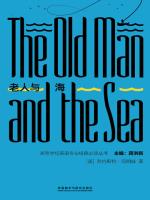222
"Robinson Crusoe" is a narrative that resonates with the human spirit's capacity for endurance and ingenuity. Reading this classic work by Daniel Defoe has been an enlightening experience, offering a profound insight into the nature of solitude, self-reliance, and personal growth.
The novel tells the story of a man who, against all odds, survives a shipwreck and is left to live alone on an uninhabited island. Crusoe's journey is a testament to the human will to survive and the ability to find meaning in the most desolate of circumstances. His initial despair gradually gives way to a pragmatic approach to life, as he learns to harness the resources around him to sustain his existence.
What I found particularly compelling was the way Crusoe's character evolves over the course of the novel. He starts as a man driven by the desire for adventure and wealth, but his time on the island teaches him the value of life beyond material success. His isolation forces him to confront his own mortality and the transient nature of human ambitions. This introspection leads to a deeper appreciation for the simple joys of life and the importance of companionship, as evidenced by his relationship with Friday.
The novel also provides a critique of colonialism and the treatment of indigenous people. Crusoe's encounter with Friday and their subsequent friendship challenge the reader to consider the ethics of cultural imposition and the value of mutual respect and understanding between different societies.
In summary, "Robinson Crusoe" is a powerful exploration of the human condition, highlighting our innate drive to survive and adapt. It underscores the importance of resilience, the transformative power of solitude, and the significance of human connection. This book is a reminder that, in the face of adversity, we have the capacity to not only endure but also to emerge stronger and wiser. It is a story that continues to inspire and challenge readers, making it a true classic of world literature.



 京公网安备 11010802032529号
京公网安备 11010802032529号